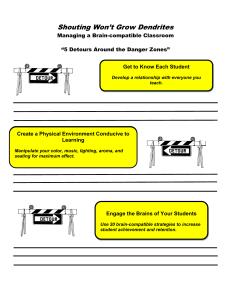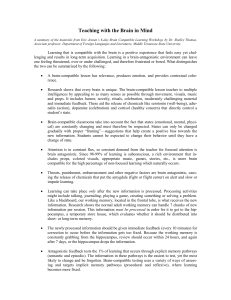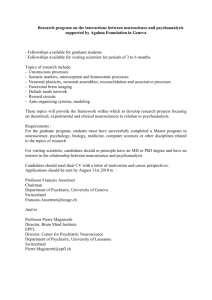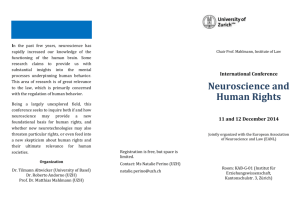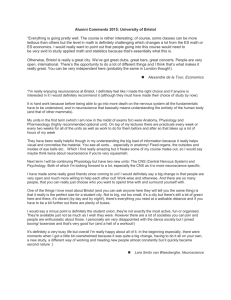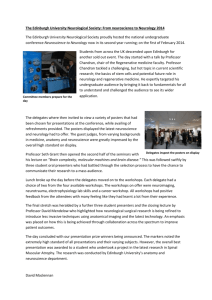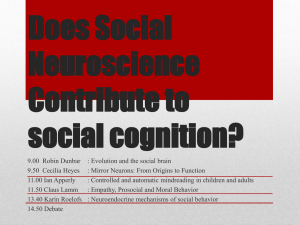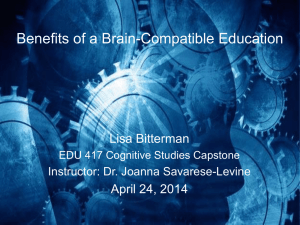Subjectivities Statement
advertisement
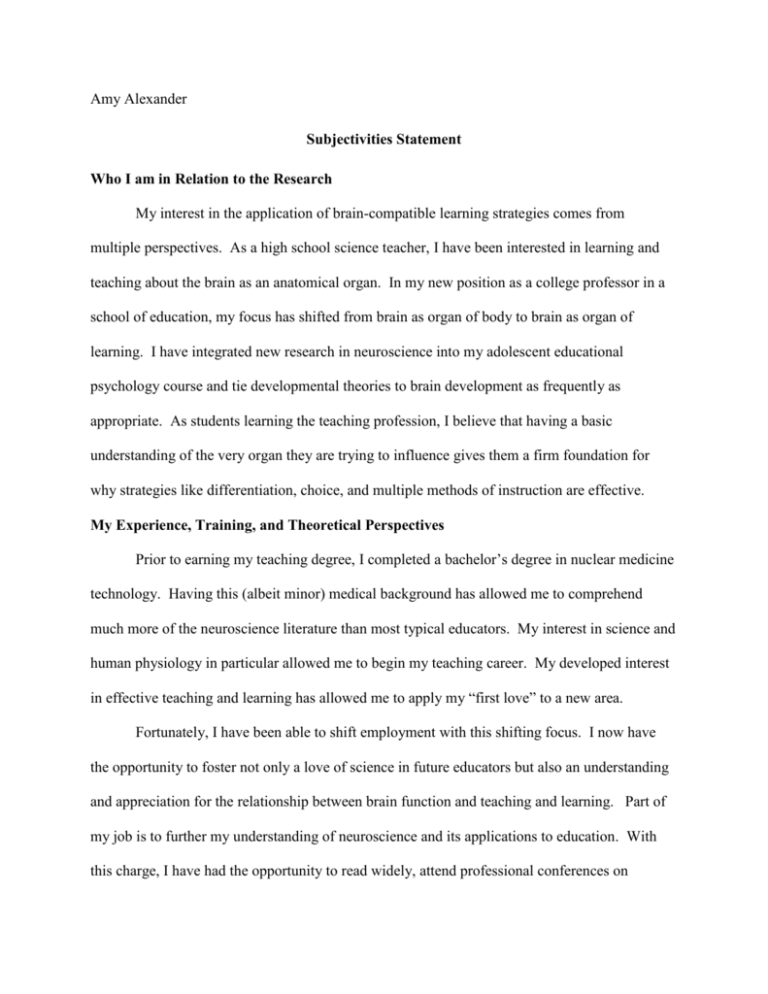
Amy Alexander Subjectivities Statement Who I am in Relation to the Research My interest in the application of brain-compatible learning strategies comes from multiple perspectives. As a high school science teacher, I have been interested in learning and teaching about the brain as an anatomical organ. In my new position as a college professor in a school of education, my focus has shifted from brain as organ of body to brain as organ of learning. I have integrated new research in neuroscience into my adolescent educational psychology course and tie developmental theories to brain development as frequently as appropriate. As students learning the teaching profession, I believe that having a basic understanding of the very organ they are trying to influence gives them a firm foundation for why strategies like differentiation, choice, and multiple methods of instruction are effective. My Experience, Training, and Theoretical Perspectives Prior to earning my teaching degree, I completed a bachelor’s degree in nuclear medicine technology. Having this (albeit minor) medical background has allowed me to comprehend much more of the neuroscience literature than most typical educators. My interest in science and human physiology in particular allowed me to begin my teaching career. My developed interest in effective teaching and learning has allowed me to apply my “first love” to a new area. Fortunately, I have been able to shift employment with this shifting focus. I now have the opportunity to foster not only a love of science in future educators but also an understanding and appreciation for the relationship between brain function and teaching and learning. Part of my job is to further my understanding of neuroscience and its applications to education. With this charge, I have had the opportunity to read widely, attend professional conferences on neuroscience, and obtain feedback from pre-service teachers on their perspectives of educational implications for neuroscience. From nuclear medicine to the anatomy classroom to a section of educational psychology, my training and experiences give me multiple perspectives and knowledge from which to draw. In moving through my own research process, I believe my study may potentially be constructed as grounded theory research. Quote what grounded theory is here. Personal Bias and How it will be Addressed My most glaring personal bias is that I do wish to show a positive relationship between knowledge of neuroscience and implementation of brain-compatible classroom strategies based on that knowledge. If teachers implement research-based brain-compatible strategies to successfully engage students in productive learning, this could have implications for teacher education programs as well as in-service teacher professional development. My personal passion for science, particularly human physiology, and effective teaching could cause me to see things that do not exist or be too stringent in identifying brain-compatible strategies. On the other hand, overcompensating for this known bias may produce the same results. In order to be completely objective, any classroom observations or interviews must be recorded and analyzed as presented. I will need to be keenly aware should I begin “fishing” for data to support my philosophy. This is where strategies such as member checks and peer review could prove invaluable to ensure validity.
